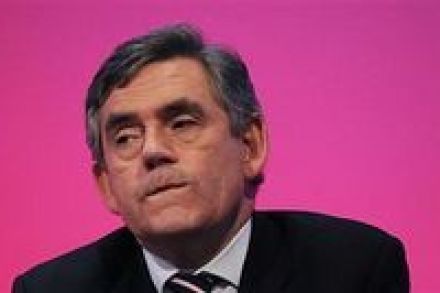Memo to Brown: compromise can be a good thing sometimes
Iain Martin writes a typically insightful post on Labour’s conference capitulation. His central point is that Brown & Co. are following a misguided “no compromise” strategy: “These difficulties with the media are part of a wider problem with the so-called ‘fight-back’ strategy being used by Gordon Brown. It is based on an analysis which is highly unlikely to convince any voter to change his or her mind. In short, it runs like this: ‘We have looked at the many opinion polls which tell us the vast majority of you think we’re untrustworthy and have messed up monumentally. But we think you’re wrong. We’re actually brilliant, and we’re going to keep




















